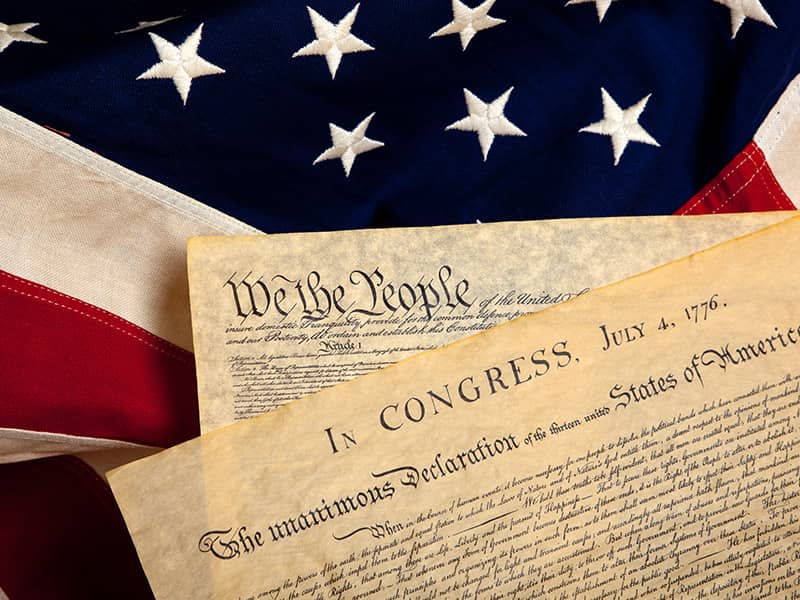Now, to restore a sense of ethics in our society, either president-elect can start by reasserting ethical standards in the financing of political campaigns.
At last count, an estimated $4 billion dollars was spent on presidential, congressional, and state races for the 2000 elections. While some of that money comes from impartial federal funds, most contributions, including a record $410 million in unrestricted soft money, come from wealthy corporations, labor unions, and individuals. Studies suggest that 80 percent of campaign contributions come from the wealthiest one quarter of one percent the population.
Nine times out of ten, the House and Senate candidates who raise the most money go on to win. No wonder public skepticism in our campaign process is so rampant. By making elected officials dependent on the goodwill of the wealthiest few of our population, present campaign practices reduce voter access to elected officials and ensure that candidates who seek office will spend most of their time raising money rather than meeting with constituents and discussing ideas.
In recent times, religious traditions have taught us that ethical pronouncements cannot be voiced only in the abstract. They must touch the mundane daily life of our societal institutions. To that end, religious leaders have and should continue to be a leading voice in the efforts to devise a fair system of campaign financing.
Religious communities and clergy were instrumental in the passage of public financing initiatives in four states: Arizona, Maine, Vermont and Massachusetts. The Washington coalition, "Religious Leaders for Campaign Finance Reform," helped bring 90-year-old Doris "Granny D" Haddock to the public's attention after her 14-month, 3,000 mile walk across America for campaign finance reform. The coalition also played a major role in building up grassroots support among adherents of all faiths for the McCain-Feingold Campaign Reform Act of 1997.
We also reacted with disappointment this year to the defeat of clean money initiatives in Missouri and Oregon, but are mindful that the public still demands fundamental reform of our campaign financing system. Four out of the five defeated incumbents in the Senate voted against the McCain Feingold Act in 1998, and a 1999 survey revealed that 72 percent of Democratic and 63 percent of Republic voters supported a system of voluntary full public financing and spending limits for campaigns.
We know that the temptation to buy unjust favors is an ancient one. The prophet Amos thundered against those merchants in Israel who "...sell the righteous for silver and the needy for a pair of shoes...and push the afflicted out of the way..." (Amos 2:6-7) Psalm 15 defines upright persons as those who "...stand by their oath even to their hurt...and do not take a bribe against the innocent." The Old Testament demands that we speak for the widow, the orphan, the poor, and the stranger. The current campaign finance system runs afoul of these common religious traditions by creating every incentive for politicians to give priority to those special interests who have made campaign donations.
The current system has also caused a loss of faith in public service by eroding trust in public authorities, honest and accountability. A 1999 study revealed that only one in four people believe that government pursues the people's agenda.
This lack of faith in government is a religious issue because responsive political leaders and institutions are crucial to the security that is necessary to human well-being. Politics can provide or withhold the safety-net systems upon which the economically vulnerable depend. It can enhance or weaken the educational opportunities available to all people. It can contribute to health or leave people to suffer.
Religious leaders have constantly had the strength of belief to challenge irresponsible leaders and resist concentrations of power that bypass, usurp, and preclude self-determination. Thus religious communities have stood in the forefront of civil rights struggles, of the anti-Apartheid demonstrations, and of significant social movements around the world. Our traditions teach us that the advantages of power and wealth must be balanced by a respect for the inherent worth and dignity of all people, regardless of their material circumstances.
Both candidates have made it clear that religious values have a role to the play in the shaping of our nation's policies and priorities. We should hold them to their word. Any system that forces elected officials to spend their time raising money rather than raising the moral consciousness of our nation and addressing the needs of our neediest citizens cannot meet the values or interests of the United States or its faith communities.

